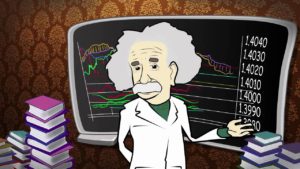The difference between CFD and futures trading in Singapore
 Both CFDs and futures trading are popular investment options among retail traders in Singapore. However, while they may appear to be quite similar in their description of the nature of trade being ‘off the exchange,’ there is one key difference between these two types of financial instruments that would influence your choice on which to use. When it comes to trading derivatives in Singapore, investors are spoilt for choice.
Both CFDs and futures trading are popular investment options among retail traders in Singapore. However, while they may appear to be quite similar in their description of the nature of trade being ‘off the exchange,’ there is one key difference between these two types of financial instruments that would influence your choice on which to use. When it comes to trading derivatives in Singapore, investors are spoilt for choice.
Futures and options, both modern investment instruments worldwide, are available here. However, if you’re new to the world of investing or trading financial securities like futures, you might be confused by the difference between these two derivatives types.
This article explains a contract for difference (CFD) and discusses its risks. It also looks at future contracts and how they differ from a CFD. The article then compares the two financial instruments before concluding with some concluding remarks on which instrument is better suited for an investor given his risk profile.
What is a contract for difference?
A contract difference is a type of derivative product based on the difference between an underlying asset price and its strike price at the point of expiry. For example, if you were to buy a CFD on Apple Inc. (AAPL) with a strike price of $100 per share and AAPL stocks subsequently traded above $110 at expiry, you would be paid the difference of $10 x 100 = $1000 by your broker even though you never actually took ownership of the stock.
If, however, AAPL shares traded below $90 by expiration, then there would be no payout to you as the contract has no value since the share traded is lower than its strike price.
As mentioned earlier, CFDs are derivatives, so there is always counterparty risk involved in trading them.
What is a futures contract?
The main difference between a CFD and a future contract is that the former does not have an expiry date while the latter has. It means there is no counterparty involved in trading futures contracts, unlike in a CFD where your broker is your counterparty.
As such, futures traders are only exposed to minimal risks. This transaction usually takes place on an exchange platform that acts as the intermediary for both parties, assuring performance and payment. It does result in much-reduced counterparty risk. One example of such exchanges would be Singapore Exchange (SGX).
What is the difference between a CFD and a future?
The main difference between a contract for difference and a future contract is that the former does not have an expiry date while the latter has. It means there is no counterparty involved in trading futures contracts, unlike in a CFD where your broker is your counterparty. As such, futures traders are only exposed to minimal risks. This transaction usually takes place on an exchange platform that acts as the intermediary for both parties, assuring performance and payment. It results in much-reduced counterparty risk. One example of such exchanges would be Singapore Exchange (SGX).
In Conclusion
We hope this article has helped you better understand the main differences between futures and CFD trading. If you are looking to trade either of these products, we recommend partnering with a reputable broker who can help guide your decisions as well as provide access to research tools that will make investing in either product more profitable for you.
Be sure not to invest without understanding all the risks associated with both these types of trades before committing any money or taking on debt from margin lending services offered by brokers. With proper education and guidance, there is no reason why anyone should be apprehensive about entering into one form of derivatives trading or another.
If you are interested in investing in CFDs or futures, check out Saxo Bank CFD.
















